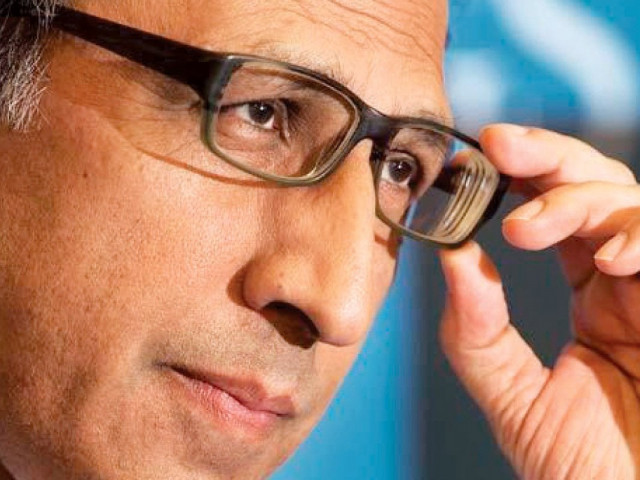Homeopathic budget
Pakistan has been on the trajectory of fiscal unsustainability for quite some time

De facto Finance Minister Dr Abdul Hafeez Shaikh. PHOTO: AFP/FILE
It seems that someone took last year’s budget, applied some jugglery and presented it to the political bosses, who then sprinkled it with political sloganeering like “Corona budget”, “structural reforms” and “expansionary fiscal policy” and presented it to the assembly. In reality however, the budget fails to take into account the economic impact of the corona pandemic or to respond to it, evades any difficult decisions that are critical for meaningful reforms, and could be termed as anything but expansionary. In fact, if it was not for the unreal revenue target pulled out of thin air, wishful provincial surplus, and the absence of any foreign loan repayment, thanks to the debt moratorium, it would have been virtually impossible to balance the books.
The budget did put forward some pro-business steps, such as absence of any new taxation measures, reduction in custom and regulatory duties, etc, but these meek reform measures are not likely to make even a minor dent in the mammoth economic challenges ahead. This is the time for a surgical intervention and not for mild homeopathic doses.
Pakistan has been on the trajectory of fiscal unsustainability for quite some time. Since 2010-11, our annual mark-up payments in nominal terms have grown 3.7 times, pensions five times, defence affairs and services 2.7 times, federal grants 4.4 times and
Public Sector Development Programme (PSDP) 2.8 times. In comparison, our tax revenue has grown by merely 2.3 times.
The year 2019-20 was the first year when our pension expenditure exceeded the entire expenditure on running of the civil government but going forward this will be a new normal. Even more alarmingly, 2019-20 was the first year when our interest payment on our outstanding debt exceeded our pensions, defence expenditure, PSDP and running of the civil government all put together. Again, this will become a routine pattern from now onwards.
In simple words, with the accumulation of public debt, our mark-up payments are leaving less and less money on the table for running the government. And out of whatever is left, the lion’s share is claimed by defence, pensions, grants to loss-making enterprises and financing of power-sector inefficiencies, leaving hardly anything for the citizens.
Sooner or later, the citizens would want to renegotiate this resource distribution arrangement. A major rethink is therefore required to change this pattern, and with the pandemic altering the world order, this year was just the perfect opportunity to do that. Tough times can substantially increase a nation’s appetite for reform. But unfortunately, it seems that we have missed the boat.
An ideal budget should have focused on areas like privatisation to get rid of unproductive assets and bleeding state-owned enterprises, pension reforms to defuse the ticking time bomb of mounting pension liabilities, power sector reforms to manage the ballooning circular debt, and rationalising the government size to leave more room for development. A cut in defence budget to finance the rising health and emergency bill would have been widely welcomed and could have created an appetite for hard but necessary decisions all across the government. Similarly, on the revenue side, it would have been far better to project a more realistic target for the next year to hammer in the need for reforms in the FBR.
But unfortunately, much of these ideas remain confined to newspaper articles, talk shows and tweets, while babus keep on making unimaginative budgets, the exchequer keeps on bleeding, taxpayers continue to be squeezed, and those sitting in power corridors continue to believe that this can go on for just a little longer, or at least long enough to let them run through their tenures in peace.
Published in The Express Tribune, June 16th, 2020.
Like Opinion & Editorial on Facebook, follow @ETOpEd on Twitter to receive all updates on all our daily pieces.















COMMENTS
Comments are moderated and generally will be posted if they are on-topic and not abusive.
For more information, please see our Comments FAQ